Entretien avec
Godfrey Ho
Existe aussi en Version Française
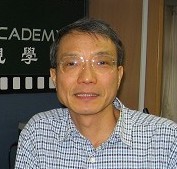 We now present to our readers, with undiluted joy, an interview with the legendary Godfrey Ho : author of the wackiest B, C, F and Z-movies of Hong Kong cinema, master of the « cut-and-paste » technique, consisting in making several movies for the price of one by editing footages of asian movies with new scenes shot with western actors, Godfrey was during the 1980s the undisputed king of crappy ninja films. After years of rumours and conspiracy theories, we could get hold of the man himself, who agreed to an interview with a refreshing mixture of frankness and bad faith. Con artist for some, unwitting genius for others, here is at last Godfrey Ho in his own words.
We now present to our readers, with undiluted joy, an interview with the legendary Godfrey Ho : author of the wackiest B, C, F and Z-movies of Hong Kong cinema, master of the « cut-and-paste » technique, consisting in making several movies for the price of one by editing footages of asian movies with new scenes shot with western actors, Godfrey was during the 1980s the undisputed king of crappy ninja films. After years of rumours and conspiracy theories, we could get hold of the man himself, who agreed to an interview with a refreshing mixture of frankness and bad faith. Con artist for some, unwitting genius for others, here is at last Godfrey Ho in his own words. We thank Godfrey Ho for his kindness and cooperation.
Note for our english readers : Mr Ho's english may appear somewhat flawed, but we wished to be as faithful as possible to his words and chose not to rewrite his own words too extensively.
How did you get to work in Hong Kong film industry?
Actually, I started my career when I was Wow, I hardly remember it (laughs) when I was 20 something. I worked in Shaw Brothers as a continuity person.
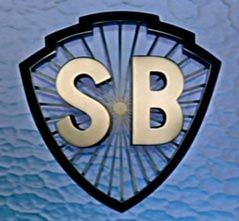
You entered through a selection exam?
No, I was recommended by somebody. He was a DP [director of photography] for Shaw Brothers. When he knew I was quite interested by filmmaking, he said Godfrey, you want to know more about filmmaking? You want to learn? Yes, of course Good, which post do you want to be? Ooh, well, camera is good but if you work as an assistant you can only become a DP and technical stuff are not my expertise so why not director? Ok, if you want to be a director, you have to start as continuity All right, cool!. So I joined Shaw Brothers and started working as a continuity for action director Chang Cheh. It lasted around one year and then I was promoted assistant director. After that, John Woo also joined the team as assistant director. I worked as the first assistant director and he was the second one. So we knew each other quite well at this moment.
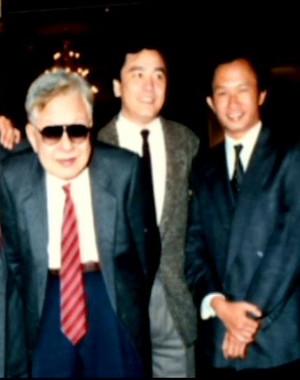
Chang Cheh (left) and John Woo (last on the right)
You only worked with Chang Cheh when you were at Shaw Brother? Not any other directors?
Only Chang Cheh. At that time, he was a very famous action director, very well known and he was working almost every day. He normally directed 4 movies a year. He was a hard working person but he didnt work all day, only starting from the afternoon. He couldnt sleep early at night, he was a late sleeper. So, he couldnt get up early in the morning. But everybody had to be on set starting from 9 O clock. We waited for the director until 1 O clock, then he shot (laughs). We were free in the morning session, most of the stuntmen were gambling and I spent my time to watch dubbing, editing or visit some other studios to watch other directors working. There were more than 10 big studios at that time! It was huge! I was lucky to be there.
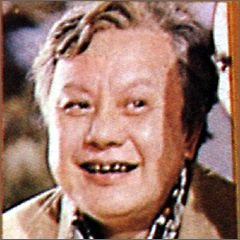
Chang Cheh
Did you have good working relation with Chang Cheh?
He had a good personality Actually, I found out at that time, the director was really like a king in the studio. Everybody had to serve him, smoking cigar, shouting, losing its temper easily. I still remember there was a movie we had location in Korea. After the wrap party, I drank some kind of wine and got a little drunk. Then, I went to his room, entered and started shouting at him! (laughs). Late morning, he came to me Hey, Godfrey, you know you were drunk last night Oh, really? And you shout at me speaking English. Chang Cheh was not good at English but his wife knew it and she did it the translation. You know you are the first assistant director? And you were so impolite! (laughs). Since that, he became a bit harsh with me. Before, he never lost temper with me. After that incident, he didnt respect me anymore. But I had to endure it because I wanted to do movies and learn more. It was a kind of master/student relationship like Jackie Chan. You know you are a small potato and you have to endure it. Not like now. Now, even me as the father of my son, I would get an answer like Hey father, you should not treat me like that, you should respect me. Before, we had to obey no matter what.
Especially as he was one of the biggest director of his time!
Yes and its also why I wanted to become a director. I thought, one day, I could be like that (laughs). But, in fact, being a director now is not like before, especially when you work independently. You must take care of everything as you are the leader of the team. If you move slowly, everybody will move slowly. If you move fast, everybody will move fast. Because we have to shoot according to rundown. If you are too late, the budget will be over. Thats what I teach my students You want to be a good director? First you must learn to control your rundown, to control your budget. You are not born to be Wong Kar Wai, Tsui Hark, that kind of big director who can spend their money wherever they like. Its a bad habit of Hong Kong movie system. Its not like in Hollywood. In Hollywood, if you go over your budget, there will be a controller who will fire the director and get somebody to replace him. Because this guy represents the bank. In Hong Kong, we get the money directly from the producer, in cash, not from the bank, they never lend money to films (laughs).
There is a story about Chang Cheh making John Woo cry on the set of Blood Brothers. Can you confirm us?
No, no, no, Chang Cheh never shout at John Woo. John Woo worked for Chang Cheh as an assistant director only for one year. After that, he left to direct his own movies for an independent company. As a matter of fact, John Woo seldom worked as an assistant director. He mostly took care of editing, he was not on set. Because hes a kind of person who seldom talk. A kind of shy person. He was smoking French cigarettes at that time and was nicknamed French guy because of that. But he respected Chang Cheh and he learned things from him, the slow motion effect, this kind of style. He admired Chang Cheh, thats why even when he got a name for himself he said I learned that from Chang Cheh. Not the technique but the creativity. Me, I only learned the technical aspects from Chang Cheh. He never taught us directly, we learned it through experience on the sets. Because, as an assistant director, I had to organise all the shots. We had to watch the rushes every day after working. So it was both a hard and good experience. It was non stop, you had to work every day, no holiday But that was a good way to force me to learn about filmmaking. So, thats why, a little bit after John Woo left, I organised with an editor [Kwok Ting Hung] and another guy who worked for Chang Cheh, and who was graduated from a France film school actually, a company. And he said lets shoot in France. It was a kind of gimmick because, this way, it would look like a high budget movie. At that period of time, it was hard to see foreign countries, that kind of scenery, unlike now you can see everything. He wanted to be the director and that was fine with me. And once in Paris, he didnt know how to direct! On set, he didnt know how to do the shots. So I took the place instead. Especially as I was also a producer on this movie. I had asked my father to lend me money. The budget was not much, I think it was 400 000 HK$ for the whole movie. So I said if you cannot do it, let me do it. So I started to direct and he was Wow, Godfrey, how come you are so fast? Its because I have experience, working all the time at Shaw Brothers. Because as the first assistant director, on set, you had to do everything for the director. He would say, this shot is like this, and me ok, I arrange it. Dealing with the extras, everything and then its ready, roll camera, action! and then cut!. And then I prepare again for the next shot.
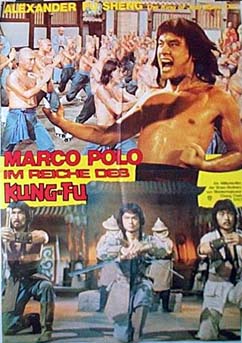
You were the one who was in charge of execution, all the practical aspects.
Yes, thats right. And I learned in such a way. And thats how I did Paris Killer. I didnt know anything about distribution at that time and once the film was finished, one of my partner, Kwok Ting Hung, he knew distributors from Taiwan and other places in Asia. But we didnt know how to sell for abroad. Thats how I got to meet Joseph Lai. I proposed him to distribute the movie, at that period of time he was working as a distributor, and the movie made money. And afterwards, Ocean Shores bought the movie for video distribution. And at that period of time, we didnt know what was video! But this boss, the one of Ocean Shores, was really smart, he knew video would be a big stream in the future. It was I buy the worldwide video right of your movie. How much? 5.000 HK$? Ok. We were very happy about it at that time but after we regretted so much (laughs). Thats how Ocean Shores made a lot of money. But no complain, because he knew how to make distribution. At that period of time, most of the independent companies, and even people like Lau Kar Leung, Samo Hung, they knew how to make movies but they didnt know about distribution. Actually, only distributors make money. The directors and others, they just work for the richest.
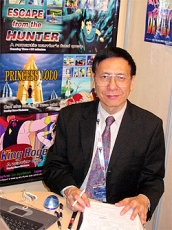
Joseph Lai.
So it was around this time you met Joseph Lai. Was it around the same time IFD was created?
IFD was created later. I sold the worldwide rights of the movie to Joseph Lai and after that I still carried on my career as a director, doing other movies. Until about 5, 6 or 7 years later on, movies really slowed down at that period of time. No more movies to be made. So I joined Joseph Lais company to learn distribution. And then, I advised him why not produce some kind of movies with foreigners in them?. To get all the foreign people here you are from the US? You want to have fun? Come! Youre from France? Great, join in!. Wherever they come from but no Chinese. And then we make them ninjas or anything. We produce something like 5 to 6 of this kind of movies a year. Because its a combination. It made a lot of money because it was very popular on the market. The people of the film markets were like how come you have foreign people in your movies? Its so good for our audiences, to have some of our own people in those Chinese movies. Its some kind of a gimmick, it works. After that, even Jackie Chan used foreign people in his movies to be the bad guys people like Richard Norton. Because how can you put a foreign people in a Chinese movie story? Before, its only a priest (laughs).
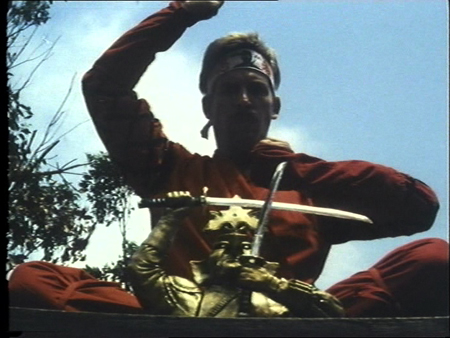
Or a police officer.
Right. Afterwards, a lot of Cantonese movies had gweilos in there. And I also organised a dubbing team in Hong Kong to dub the movies. To train the people to dub. Because at that time, the number of people to dub was not sufficient for the studio. So I had to find some kind of back up. I would go to Chunking Mansion You are a traveller? You want to make money for a couple of days? How much? One hour, I give you fifty bucks But I dont know how
to
never mind, I teach you (laughs).

Ill come back a bit in time, around the end of the 70ies. There is in your filmography a lot of movies shot in Korea with Korean actors as Hwang Jang Lee and on which you are credited as the director. Is it really you who directed them or were they Korean productions simply with your name on it?
I was the co director actually.
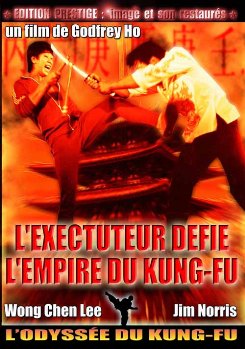
So, you were really there shooting?
Yes, most of the parts were done by Korean directors. But for distribution, I put only my name on it. Because, otherwise, how can I direct more than 6 to 7 films a year? Its impossible! I was a kind of chief director. I knew the story
You were like Chang Cheh in a way, supervising everything
Right. That kind. Because the boss of IFD, there was 2 boss, one was called Thomas Tang, he died in a fire a few years later, the other one was Joseph Lai. These 2 guys found a market and I was a kind of expert. So I advised them and I made those 2 guys rich.
How were the shooting conditions in Korea at that time?
Fine. Very good. They were quite professional. Its only their ideas which were quite domestic, very local. But they learned something about China, thats why they want to shoot something about Kung Fu or dressed like Chinese people. But the foreign markets, they dont know about Chinese culture. Who knows the King of China looks like that? They dont care about that, they care about action only. And luckily, Korean people they know Kung Fu so well, especially the kicks with Taekwondo, compared to Chinese Kung Fu more with hands. This combination works. At that period of time, Hwang Jang Lee, this kind of people, they were so popular. People looked at them and were like Wow, great! (laughs). It was the golden time of the Kung Fu era. A lot of young kids were in the audience.
So, the deal with the Korean was that you would handle distribution all over the world and they would keep the rights for the domestic market?
Korean, they had their own markets. They would handle them themselves yes.
The IFD years.

Lets go into your IFD years. How was your collaboration with Joseph Lai and Betty Chan?
Betty Chan is Joseph Lais wife. I worked with Joseph Lai for distribution, I learned film distribution from him. I worked with him on film markets. Each year I would attend to film festivals.
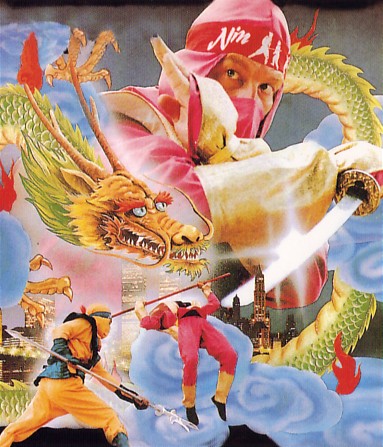
What would you do for him? A bit of everything? Directing? Producing?
At the very beginning, I directed for him but I could not after because I was so busy with the dubbing, the production. I just introduced some people to direct for him. I would take care of the dubbing, the distribution. That was the golden time man! The first years in Milan film festival, he would do the contract himself, like 20 to 30 contracts and finish. Amazing. But now its no longer like that. Youre already very lucky if you can do 10 to 15 contracts. Before, 30 to 40 was so easy. Because there was so many buyers, from Turkey, France, Germany The market was booming. So good business.
Your relations with him remained only professional or you became friend in the process?
I just worked as a staff for him. He said he would give me shares, verbally, but it never happened. Its too bad because verbally contracts have no value. Thats quite typical of Chinese people. Before I got in the company, he told me Godfrey, lets work together, you will have shares in my company. And if he got his Rolls Royce, I should get my Mercedes, right? (laughs) But actually not. Thats why my wife said to me come on, dont work for him any longer, you are making money for him, not for yourself, think about your future. Thats why I just left him and joined My Way company and established my own, Filmswell, to produce and distribute movies. After that, he seldom made movies anymore, because the movies I make are better than his. They were hard to sell and the market was becoming tighter and tighter. But he still manages to produce things, for a very small market, on DVD.
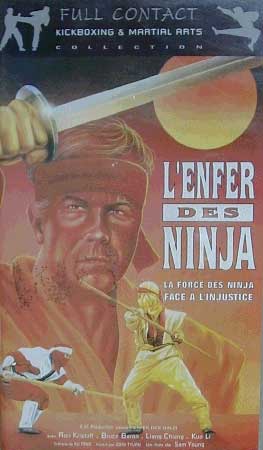
So, when you were shooting films for IFD, what type of working conditions did you have? You had a script? You were working on several movies at the same time?
Yeah, 2 at the same time. We would get someone as a co-director to shoot some kind of Chinese parts and then, the foreign parts with foreign people, I would supervise them.
Its in the editing process, you would make one and only movie, right?
Exactly. Some time, the direction was not so good though, its only through editing we would combine the story. First time, you just watch the movie, you find it interesting. Second time, oh, there is something wrong there. Third time, Oh, thats not the way, that kind. Its the action which can cheat you, thats the point.
Usually, who was supervising the editing process? Was it Joseph Lai in person?
I was the one supervising the editing but afterwards Joseph would ask the editor to make some change. A bad habit of the producers in Hong Kong. Its not like in the US, if you want to change the script, you must call the scriptwriter to let him do so. Otherwise, you cannot change a single word, you would receive a letter from their attorney. Its because of union.
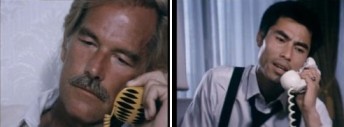
Richard Harrison « talking » to Jack Lam in «Ninja Terminator ».
In many of the movies you did, there is the same music always being used. Was it something composed specially?
No, thats what we call can music, from public domain. No copyright. Sometimes, we would ask a composer here, and he would grab music from all around the world. Now, they have to buy the music from Warner Brothers but, before, no rule.
How long would it usually take to shoot an IFD film?
Some were done in 2 weeks. Some in 3 weeks. A short period of time. Because the foreign parts, we would just edit it in between. You can see there is a Chinese part and a foreign part.
You are referring to the movies bought by IFD in Thailand or elsewhere?
Right. We would usually have it in the beginning, the middle and the end.
And it would make the movie more marketable this way?
Oh, yeah, yeah. Because the video market was still ok. Distributors from Turkey, they would buy the copyrights for 5000 US$ for example. Distributors, producers only care about the money. Filmmakers care about art. Thats the difference (laughs).
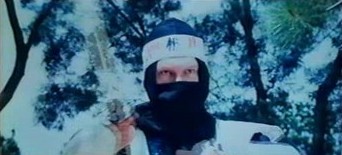
You seem to often shoot in the same places, I guess its once again to reduce the costs?
Yes, we had to. It was a technique to minimise the cost. Thats also quite important. Somehow, thats also why I teach my students you want to do a movie? Its not a matter of high or low budget. If the screenplay is good, even if it deals only with 2 persons in a room, it can make a very good story. Like Saw. Youre not like Titanic, youre not qualified to be Titanics director yet, James Cameron. You have to start with small productions. Make somebody think, wow its a talented director and climb steps by steps.
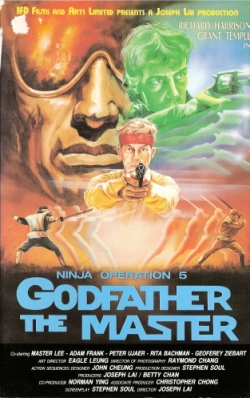
As you said, the movies you did for IFD were dubbed after. Was it because the sync sound would cost too much?
Oh yeah, yeah. Sync sound always cost a lot. At that period of time, most of the movies were not shot sync sound. But now, this past 10 years, most of the movies are shot sync sound. Before, they were all dubbed. So you can see all the dubbing in English is so funny (laughs).
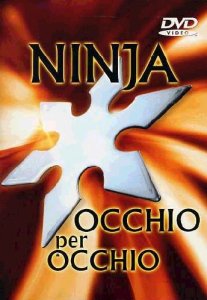
Thats what you told us, because the people dubbing were from Chungking Mansion and places like that.
Right. Somehow, they didnt care. They didnt care about the story, only about the action. Most of the audience, they would concentrate only on the action, finding it tremendous. Because compared to Hollywood, it was completely different. Not now because John Woo and some HK action directors work there like Yuen Woo Ping. Doing Kill Bill, Hong Kong action.
Were they any professional English dubbing artists working in Hong Kong?
Actually, I trained an American guy to be the dubbing supervisor. I trained him to dub first and then he became supervisor. There was a lady also working as dubbing supervisor, she did good quality, for higher budgets like Cinema City, this kind. Professional dubbers are not more than 15 people. Most of them, they would work for radio or TV station. The dubbing, only amateurs, part time, because its hard to survive only on dubbing. But at that period of time, some of them became professional dubbers. Because, there was so many movies! So, they would quit their jobs to be dubbers. But, after that, when the market fell down, no more. Even the dubbing supervisor, named Scott, he went back to States. He cannot survive here anymore. Now, not many dubbers can be found. They are back to radio or TV station.
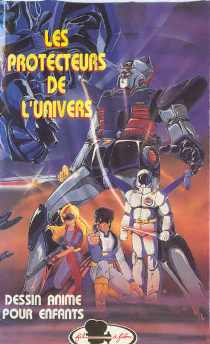
Joseph Lai is also credited as producers on many cartoons and credits show many of your usual crewmembers. Do you know more about that?
The cartoons were made in China. It would make the budget lower there, he invested in them. But I dont think it ever got to be popular. Because it depends a lot on the screenplay too and there are so many cartoons all around the world. That kind of cartoons cant compete with those like Walt Disney. But somehow, it shows he was ready to invest and participate in filmmaking. Like, when he emigrated to the States, before I would do films like Honor and Glory with my own company Filmswell, I told him you want to make American movies man because youre now living in the States, you can meet the distributors there, like Imperial, Canon, talk to them!. And also, actually, Joseph Lai is the brother of the boss of Intercontinental, a Hong Kong based company. They are a big distribution company, they buy a lot of rights of foreign movies to distribute them in Hong Kong. So she met a lot of distributors. With this connection, why not produce B grade American movies? Still, he didnt make one. He was scared to do so. But I did 3 : Honor and Glory, Undefeatable and Manhahttan Chase. They did ok.
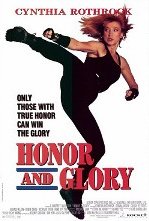
On some credits, there are people listed like Homer Kwong, Benny Ho Is it you or other real people?
(laughs) Normally, the films I direct, I use my own name, Godfrey Ho. But the others may be not my own name, only distributors. Joseph Lai would change the name to have another Ho something like that. But Benny Ho is my own name too. The others, no, I dont know who they are.
In a website interview you supposedly did, it is said you use the name Alton Cheung
Alton Cheung is an actors name. Its not my name. The only names I used are Godfrey Ho, Benny Ho, Godfrey Hall or Ho Chi Keung. Other names are not me.
How did you recruit the western actors for the movies?
Going to Chungking Mansion, things like that. I would send some kind of line producer go to Chungking Mansion, meet the foreign people there, ask them if they want to do movies or not. I just need their face, they would be ninjas, the stuntmen would do the fights for them. They would just say a line and go, very simple acting. I need their face only. Bring anybody you can find.
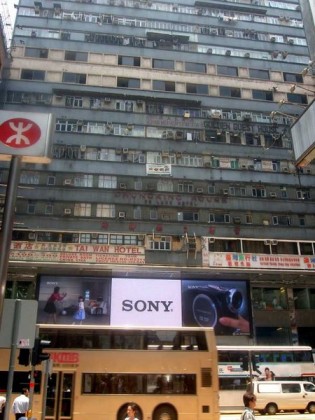
One side of Chungking Mansions
Do you remember how many movies had been made by Philip Ko for IFD?
Quite many. He would be credited under his real name.
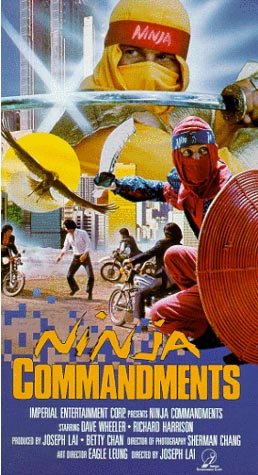
Some people who worked for IFD said the working conditions were very harsh, shooting in the night, very late and that even some triad society were involved in the crew. Do you confirm?
Actually, sometimes, it can happen because of low budget. At that period of time, the shooting conditions for the crew could not be compared with Hollywood. In Hollywood, I had to make a coffee table ready for 24H00 with some biscuits. Because the crew people, especially the best boy, the electrician, when they are working they go there to have a coffee and bla bla bla. But not in Hong Kong! There is just a lunch box and a bottle of water, thats all. It cannot compare because we dont have union. Thats why. Its a bad thing for the crew here but now is better because if you want to be professional, you have to become like Hollywood.
Do you have an idea of the number of movies you directed?
Pretty close to 40 or 50. Something like that.
According to Mike Abbott, when you worked for IFD, you could not work for Filmark, and the contrary. Was there a rivality between the 2?
Oh yeah. Because the boss they were in the same company originally, Thomas Tang and Joseph Lai, after they splitted. There was competition. As Im a good friend of Joseph, I just worked for Joseph, not Filmark.
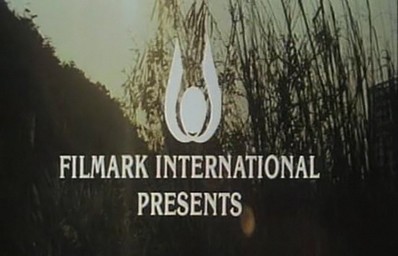
Its not easy to figure between all the production companies youve been involved in. There was IFD but also Ada Communication, Bo Ho and Win.
Its IFD again. They were mostly dealing with video. Joseph Lai created Ada to deal with video distribution. Bo Ho, I dont know what it is. As for Win, its the company which was previously China Star.
Rights of Filmmark films seems to have been sold in Philippines, to a director, do you know about that?
They sold the film to anywhere, worldwide. I remember on one film, he did a very good deal with Japan. Thomas Tang had good commercial gimmicks.
Like Joseph Lai.
Yes, they were very good at doing this kind of B grade movie. At that period of time, movies didnt have good distribution. Except Terence Chang, the partner of John Woo. He worked for D&B. They were doing good movies, he brought them to markets and sold them for good prices, the A prices. Our movies were only for B prices because they were different budgets.
Can you tell us how you started to do Honour and Glory?
At that period of time, Cynthia Rothrock was still good on the market. So I talked to her in the US.
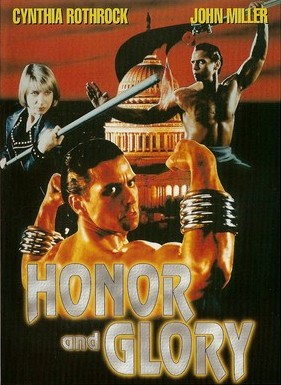
You never had any contacts with her when she was doing movies in HK?
No, I didnt know her at all. But I knew she was quite sellable so I contacted her to ask if she was willing to do something for us. ok, just pay me all right, no problem. There is a company in Washington DC called Action Star with a Kung Fu master as the boss, Tai Yim, to produce movies. He was running a Kung Fu school and had many students knowing Kung Fu. So I met them you have many people doing Kung Fu, know how to play; but you dont know how to make movies, lets join together. And we got Cynthia Rothrock there to make Honour and Glory. We shot the all movie there. Low budget but it made money. Then we did Undeafeatable. For Honour and Glory, we had Cynthia Rothrock only for one week. A really tough schedule for her. And for me too. So for Undeafeatable, I said lets do a whole movie. A contract for a whole movie, for 4 weeks of shooting. It costs more of course but we can sell it to the US market, video rights, and its quite good. Honor and Glory and Undeafeatables made money because Cynthia Rothrock is so famous all around the world at that period of time. Shes the only American girl who can fight! So, the people like her. After that, I made another one called Manhattan Chase. But the video market fell down. So we couldnt sell for US market. And we aimed at American market, thats why we make this kind of American movie. If we cant get 50, to 60% from the American market, we lose money easily. Because we cannot release this film in Hong Kong. B grade American movies cannot be released in Hong Kong, because there are no names like Tom Cruise. So, we stopped and didnt make a fourth one.
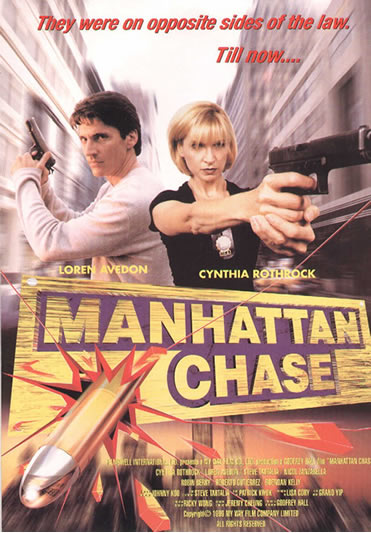
Cynthia Rothrock is used to work in Hong Kong so I guess she was quite flexible.
Shes the kind of very professional American actress. Shes good, on the set on time, really professional. Unlike Sibelle Hu. She was really not professional.
Did you get any problem in working with Loren Avedon whose reputation is not very good?
Oh, Loren! Yeah, yeah, hes quite emotional actually. Hes an action actor but quite a trouble maker. He always brings his personal affairs on set. Godfrey, my wife and I had an argument oh, shit, dont bring this on set. Today were shooting the movie But I dont feel well because of my wife Oh, come on! Youre not professional. On set, I forget my wife in Hong Kong. I forget everything about Hong Kong. On set, Im here to do my work. Thats being professional. Thats why hes not a very good actor and has difficulty to find works in Hollywood. He did one movie with Ng See Yuen [No Retreat No Surender: Raging Thunder] and looked like he was workable. Thats how he got a name for himself.
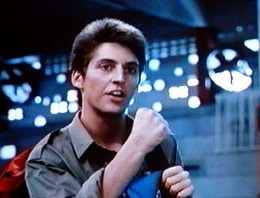
Loren Avedon.
Can you tell us more about your collaboration with Tai Yim?
Hes good. Hes a very good martial arts master. Actually, he has one younger brother [Sin Yim] and thats him who runs the school in Washington DC. They were the executive producers on those movies because I dont know the States too much so I preferred to let them handle production and distribution. Because Sifu Tai has so many students and one of them was a lawyer and he could do business with the distributors there. But unfortunately, he didnt pay enough attention to this business. I told him I bring you in this career, you can continue as a filmmaker. He wanted to be but he didnt. I gave him a start, his school got a name, got publicity. He couldnt do a good job for that. Its a pity.
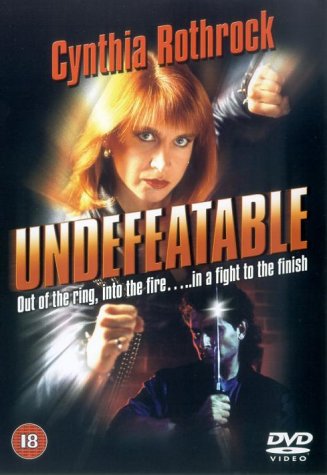
Were you satisfied by the choreography he did for the movie?
Oh, yes, its ok. I taught him how to do choreography. Unfortunately, he didnt want to show in the movie the Chinese martial artists. Luckily, his other students could play well. Especially with some kind of weapon. The guy with the long knife[Kwan Dao], that kind, he could really use those well. This guys name is John [John Miller] and hes running a gymnasium. He worked his body but also learned Kung Fu for years from Tai Yim. Thats why it was easy to get those American action actors. They couldve really expanded as a little production company, doing distribution as well, after that but they were not very good businessmen (laughs).
Undefeatable exists in 2 version. One is for the Asian market under the name Bloody Mary Killer with extra scenes of Yukari Oshima.
Yeah, yeah, I see youve really done good research (laughs). I had to do 2 versions in order to sell in Asia. Thats why I added scenes with Yukari Oshima and Robin Shou, to make the story more oriental. It works. We managed to sell it in Taiwan for good money, otherwise, with only American guys, C grade cast, its difficult.
Which version do you prefer between the 2?
The Chinese of course. But its 2 different styles. Because with the low budget, I can only direct in a simple way, no dolly shot, more steady, it saves time. In Hong Kong, we can use dolly shots.
Do you know the last fight of Undefeatable is considered as a cult classic on the internet?
I dont know. It was not too bad. I wanted it to be less oriental, more American style. So I let them use some kind of weapon and their body. They are two strong, big guys so I wanted to show a strong power. At that period of time, it was quite good because these two guys studied martial arts under Sifu Tai. They could do whatever, they could really perform like Chinese guys. Like Bolo you see. And even Bolo is less good because they could kick quite well too. Bolo cannot kick well.
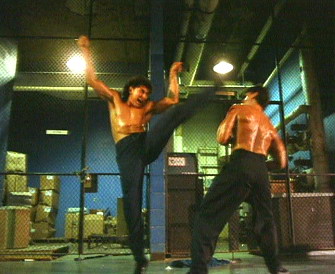
Directing Gweilos
What memories do you keep about Alphonse Beni?
The black guy, right? I met him in the Cannes Film Festival. He was a distributor in Cameroon. When he saw our movies, he was Oh, great, Godfrey!. I want to make movies you want to make movies? Ok but I also want to be the star ok, come on! (laughs). Thats it! Just pay the money, you have your copyrights for Cameroon or for Africa or France, you have your copyrights and it includes you to be the star in the movie. You like that? Cool! Thats how we did Black Ninja. It was so lousy (laughs). But he paid the money, he wanted to be the star, why not? (laughs). Thats the business.
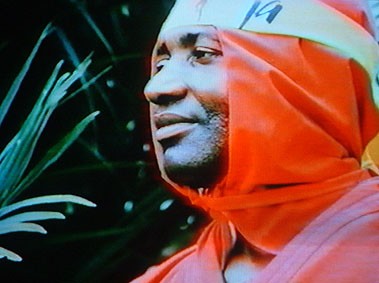
Alphonse Beni in all his ninja glory.
Did he do anything else for IFD?
Just Black Ninja for IFD and then I worked with him for myself. [Godfrey Ho probably refers to a film called Top Mission, produced by himself and directed by one Charles Lee]
I would like to know the memories youve kept of some of the western actors youve worked with. The first one is Pierre Tremblay.
Hes also a dubber. Hes good. Hes quite a guy with humour. Very nice guy, he married a Chinese girl.
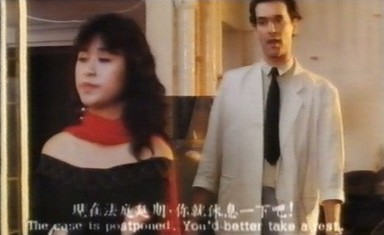
Pierre Tremblay in Princess Madam
John Ladalski.
Hes a little bit of a trouble maker. I met him last year at Hong Kong film market. Hes now staying in Thailand. He has quite a cinematic face but hes not very professional, hes quite emotional too. Compared to other American actors, hes not quite so professional. I think I prefer working with Pierre [Tremblay] rather than John.
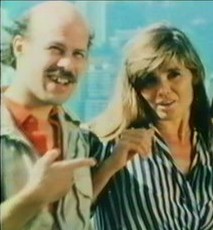
John Ladalski in Diamond Ninja Force
Bruce Baron.
Very troublesome. I remember once he wanted to make fun with a cameraman. But he made trouble with him and they wanted to fight with each other. I had to stop them. Because he speaks a little bit of Chinese and he wanted to get acquaintance with the cameraman. At the beginning, it was for fun but he lost temper and the camera crew, a couple of guys, wanted to fight with him. I was You want to kill him? You want to hurt him? I cannot shoot! Come on, kidding is kidding, joke is not supposed to be taken seriously. Stop that crap. Hes not the kind of professional actor.
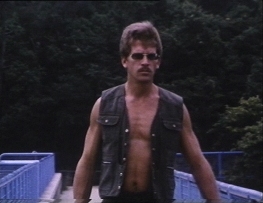
Stuart Smith.
Its ok, quite good. Quite cooperative.
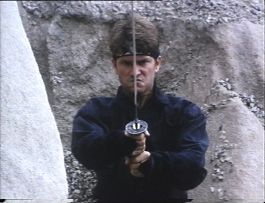
Richard Harrison.
Richard is good! A very good guy, a kind of gentleman.
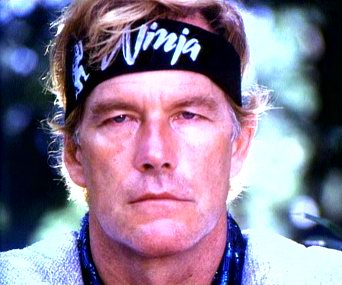
Richard Harrison, obviously enjoying himself in The Ninja Squad.
Mike Abbott.
A kind of rude person. Because hes quite a strong guy and straightforward, western style. But no complaints for me.
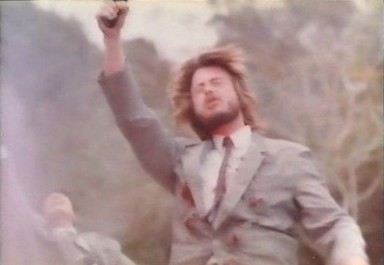
Cop Mike Abbott meets his maker in « Princess Madam »
Bruce Fontaine.
Yeah, quite kind. Good personality with good moral. Very cooperative.
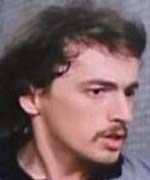
Jonathan Isgar.
Kind of funny guy. I like him too but not too professional, he made movies for fun. Still, he was very cooperative.
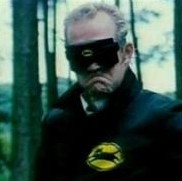
Jonathan Isgar is... Catman !
Ken Goodman.
So, so. But no complaints for me.
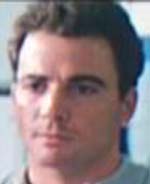
Steve Tartalia.
Hes quite challenging, very active. Because he knew Kung Fu and always wanted to challenge. I was no, no, dont challenge anybody, keep Kung Fu for yourself (laughs). Once, he fought with a British guy.
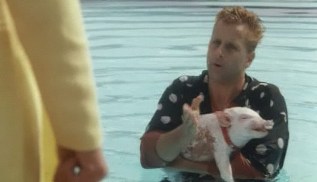
Steve Tartalia in Robert Tais Trinity goes East
Mark Houghton, right?
Yeah! And Mark Houghton is a good Hung Gar practitioner and he punched his nose. I asked them: please guys, dont do that on set, do it if you want after we have wrapped but not on set, please, please (laughs). But Mark is a good guy.
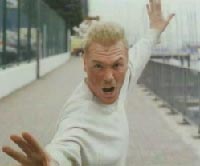
Some actors you have worked with and Im thinking mostly of Richard Harrison and Bruce Baron, have complained about the deal they did here. They signed for one movie and found themselves in ten of them!
Yes, you talk about the ninjas stuff right? Yes, we did by editing. Because they are on a kind of mission so the mission can be in this movie or another one. Thats why the producer asked me if I could do it. I was Oh, come on. I didnt want to do it but as he was the boss And thats why Richard Harrison was Godfrey, you betrayed me! come on, its not my fault. I could not control it because my boss forced me to do so. Im just the middle man. He did the deal with the producer, thats to him he should complain, not me. But its true he signed a contract for maybe 2 to 3 movies and the producer made it the double by editing. It made Richard Harrison really mad. Its because this kind of boss has no moral. Thats also why I left. He was just looking for short term benefits and didnt really want to do something good.
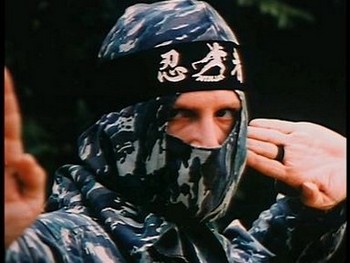
What are your current activities as a teacher now?
Ive been working at the Multimedia Innovation Center of the Polytechnic University for 5 years and teaching the student there about filmmaking, directing, editing, lighting. Multimedia Innovation Center was later integrated with the School of Design and they wanted the lecturer to have a degree, which is not my case, so I could not teach anymore there. I left and joined Hong Kong Film Academy. Now I teach people academically, so I had to read filmmaking books. Now I know what a script writer do because I know filmmaking. Before, when I read film books, it was like oh, what the hell is that. Its hard to understand. So thats what I tell to my students you come here, I teach you very practical filmmaking. Not only books, no need to come here for that, you can just order them from Hollywood. There are so many. Thats why when you watch academic filmmaking, you dont understand whats going on. When I was making a movie in New York and I had an assistant director who studied filmmaking in New York University. He asked me Oh, Godfrey, how come the way you direct is so different from what we learned from our professors? Of course, your professor is not the director, he can teach you academically but not practically. What Im doing is practical techniques. Especially films with low budget. Films with big budget are easy. Low budget, the director is like a worker (laughs). I worked as a producer, a director, I had to take care of everything even the lunch, breakfast or dinner. When Cynthia Rothrock arrived from LA, I had to tell the line producer to pick her up at the airport. I had to handle this kind of stuff. So filmmaking is very challenging. You must keep your mind always on the move, to organise everything. Its not boring like a clerk (laughs). Im very busy here and enjoy meeting young people. And everybody enjoy my teaching. Its not simply open your books bla bla bla I teach them how it is on set. I got a student from Korea, Netherlands, Philippines or Hong Kong. My student from Korea graduated, he did a short film and participated in some kind of festival and got a lot of reward. And now is working in Korea in a company planning to reproduce John Woos A Better Tomorrow. He wants to be a director and do it here. I told him you want to be a director? Stay in Korea! Because Koreans movies are booming now. He speaks Korean, Cantonese and English. Thats why, after doing movies in Korea, if an American company comes, he will be the one they will see. He has a very good future. Not in Hong Kong, Hong Kong is dead (laughs).
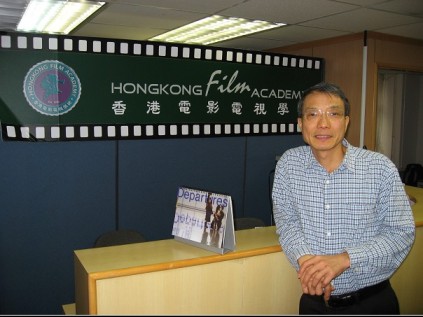
Do you still have some projects for yourself?
No, not yet. Until the market is getting better. Otherwise, its just wasting time. We do movies according to the market. We like to do it for arts but we must survive too. A producer wont put one million in a production if he cant get back the money. Its easier to lose money than winning it. I could do TV series in China but there is no creativity. You must finish one episode within 2 or 3 days. 40-minute-video done in 2 or 3 days! Its a very tight schedule. If I was young enough, I could do this kind of work but now, for me, its difficult and no fun. I dont want to do it anymore because Ive been directing for so many years. Why I did this job? Its because, when I was young, I saw airplanes in the sky. I thought if I do this job, I can get a chance to fly, to take the plane (laughs). Because at that period of time, we were so poor, it was hard to pay a ticket. After that, I travelled too much (laughs). I enjoyed my work.
Would you have a final word for all the people all over the world who enjoyed watching your ninjas or kickboxing movies?
I just want to thank them to have enjoyed our movies. Because, they are commercial, dont treat them as some kind of masterpiece. Its like watching a TV game. If youre looking for good artistic value, no, sorry! At that period of time, I was not ready to do this kind of stuff. Maybe in the future, if I do another movie, Ill pay more attention to the script and mise-en-scene so as to make a good film.
Big thanks to Godfrey Ho for his kindness.
Thanks extended to Roy Horan for his help.

